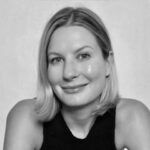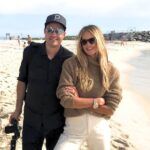Image: Dr Tim Galvin
Author | Carmelle Wilkinson
Being legally blind means Dr Tim Galvin from the Curtin Institute of Radio Astronomy may never be able to gaze through a telescope and admire the stars, but that hasn’t stopped the 32-year-old from studying the wonders of the night sky.
Helping to interpret vital data for the international project the Murchison Widefield Array, Tim helps create stunning visuals of our Southern sky and beyond.
As a member of the Abilities Collective @ Curtin, Tim joins a group of staff members with disabilities (and non-disabled members) who are helping to forge a brighter and more accessible future.
With a passion for astronomy, a sharp scientific mind and a healthy dose of determination, Tim is a shining example of how to realise your dreams despite considerable challenges.
Read his inspiring story below.
Hi Tim, how does someone who is visually impaired decide to pursue a career in astronomy?
For years I wanted to be a pilot. Like many young boys I was fascinated with aviation and for a long time that’s all I could see myself doing. But in my late teens I realised that dream would never be fulfilled, and I had to have a serious rethink.
As someone who has always been interested in computers the natural progression was to study Computer Science at university. After two years working in the field, I soon realised it wasn’t for me, and this then led me to my real passion – astronomy.
For me, studying galaxies is a reminder of just how small we really are in this big wide universe. It gives us greater appreciation and understanding of where we are and what’s around us.
Can you tell me a bit about your personal background and your journey with Curtin?
Born and raised in Sydney, I moved to Perth about four years ago to take part in a post-doctoral position at CSIRO before landing my current role at the Curtin Institute of Radio Astronomy, where I’ve now been for two years.
To me I had a typical childhood, I grew up with my mum, dad, brother and sister and I was no different to my peers. It wasn’t until I was about 4 or 5 years of age that my condition, known as Choroideremia, was diagnosed.
With no symptoms and no expression of the condition, apart from some trouble seeing at night, it was picked up through a routine check-up at the ophthalmologist one day. The degenerative, inherited condition causes progressive vision loss over time, which has seen my eyesight deteriorate quite a bit over the years.
I was lucky enough to have my driver’s licence for 2-3 years before my doctor said I had lost too much vision and would no longer be able to get behind the wheel.
If I was to describe what I can see, I would say it’s like looking through a very narrow tunnel – much like a toilet roll. I see light at the end of the tunnel but not the darkness around it. If I’m centred on an object or text I can read it comfortably with my good eye, but it’s very difficult to pick up motion and movement around me.
When someone thinks of an astronomer, they may imagine them bent over their desk peering through a telescope, but that’s not the case with me. I can wholeheartedly say I’ve never been able to see through a telescope and I probably never will.
Luckily with radio astronomy I don’t have to though, as I use radio telescopes to pick up radio waves which I then interpret using filter and algorithms to calculate images.
What challenges have you faced in your life? And how does living with a visual impairment affect your work at Curtin?
It was heartbreaking for a long time, just things people wouldn’t think twice about like tying your shoelaces was a challenge.
Moving to Perth on my own four years ago, without the support of my family was a huge adjustment. Finding my way around a new city and getting familiar with the layout of the local supermarket did take some time.
While there are things that I still struggle with, such as crossing a busy street or trying to navigate a crowded café, for the most part being legally blind doesn’t stop me from doing what I love.
Working at Curtin, I don’t find my visual impairment to be a disadvantage at all. Using supercomputers I’m able to transform massive amounts of raw data into images of tens of thousands of galaxies, and that’s an incredible experience.
As a member of the Abilities Collective @ Curtin what are some of your goals?
For a start, knowing I’m a part of a group facing similar challenges is reassuring.
Starting at a new workplace is daunting for anyone, especially for someone with a disability, which is why the Abilities Collective @ Curtin is so important.
The group explores ways to support disability inclusion and access at Curtin, through building modifications, workplace adjustment and parking and accessibility around campus.
Changes to my office space after an initial assessment has greatly enhanced my day-to-day work life, and just small things such as adding a bright green strip to previously all-white poles at my building have allowed for greater visibility when walking around.
It’s reassuring having a collective like this for likeminded people in similar positions to myself to network, share experiences and improve our working space so it is more inclusive and accessible to everyone.
At the end of the day, we aren’t identical in our circumstances, but we are all working towards a common goal.
Just being aware there are staff and students who may have physical issues getting around a big Campus with multiple buildings, steps, and footpaths is a step in the right direction.
Together we can create change for the better.
Do you have any words of wisdom for someone who may feel they are limited by their physical or mental disability?
Pursue something you love doing, even though there are difficulties.
There will always be great people around you to support you and help you overcome those hurdles that appear.
The Abilities Collective @ Curtin is a group of Curtin University staff members with disabilities and allies who want to see positive change for people with disabilities studying and working at Curtin.
Author | Carmelle Wilkinson
___



